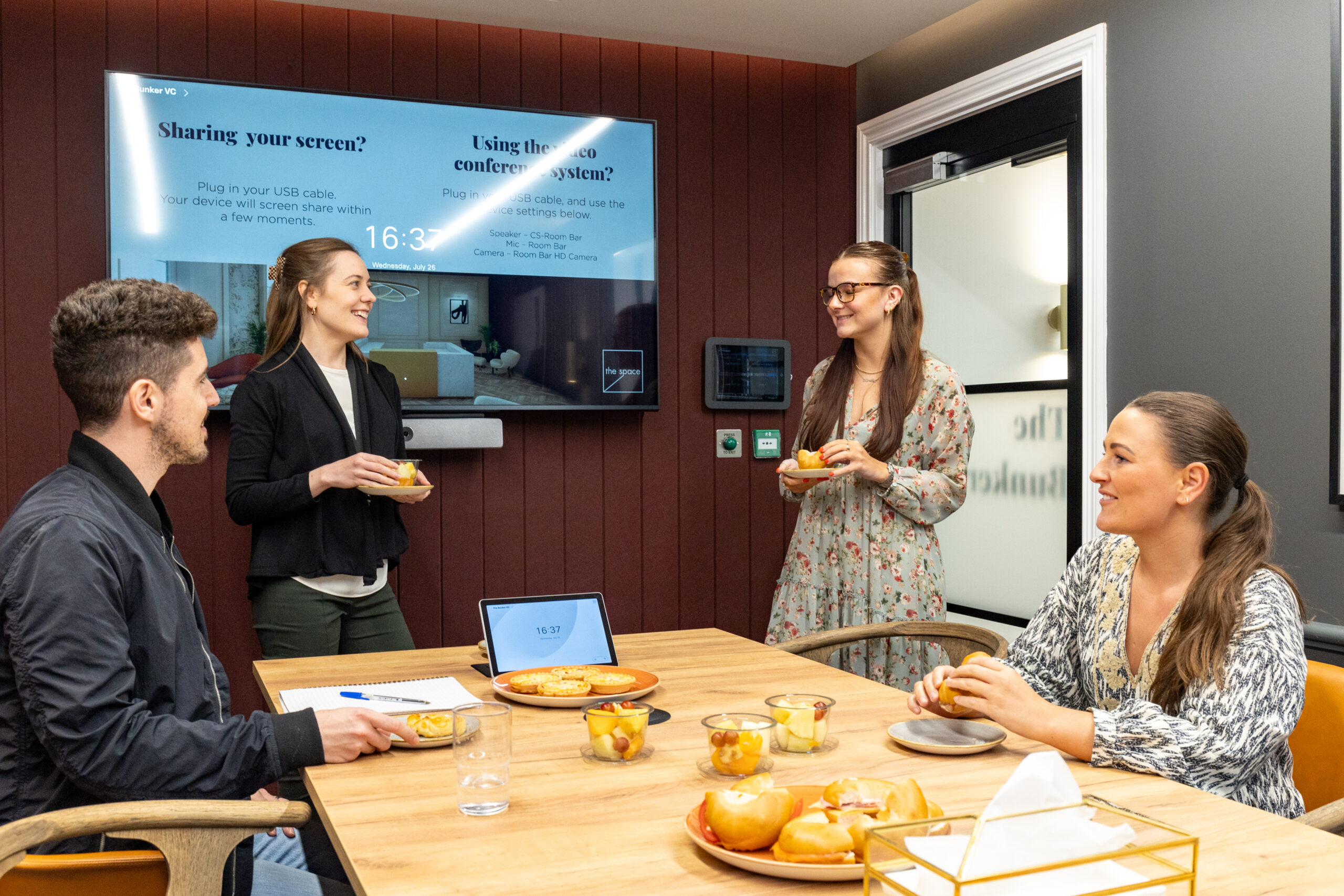Being back together again and learning from home working
10th November 2021

By Fiona Dunger, Consultant Solicitor – Employment Team, Jurit LLP
The Government is no longer instructing people to work from home if they can, and it was expected that there would be a gradual return to the workplace over the Summer. The furlough scheme having ended on 30th September, it is likely that more staff will be returning to their workplaces during the Autumn.
What lessons have we learnt from home working that may facilitate a better working environment once we are all back together again?
Stress and Mental Health
As guidance that we should continue to work at home was repeatedly extended during the COVID-19 pandemic, some workers reported a negative impact on their mental health. Feelings of isolation increased and being away from colleagues meant no “coffee machine chats”. They missed the collaboration and feeling of community, and the general level of support available when they were in the office. Some also reported a blurring of the boundaries between work and home, so felt unable to switch off. Evidence suggested that the average working day had lengthened by 2 hours for home workers.
Employers have the same health and safety responsibilities for home workers as for any other workers and they must consider:-
• how to keep in touch with them regularly;
• what work activities they will be doing;
• whether these can be done safely; and
• what control measures are required.
Working alone at home presents greater risks, with no direct supervision and no-one there to help them if things go wrong. It was therefore very important to keep in touch regularly to avoid home workers feeling isolated and abandoned, which could affect their stress levels and their mental health.
Employers have a legal duty to protect employees from stress by doing a risk assessment and acting on it. The Health and Safety Executive provide a risk assessment template.
The return to the office means employers can pick up more easily on signs of stress and therefore act on these quickly so that problems can be ‘nipped in the bud’. This will hopefully reduce the impact on the employee and the workplace. The Health and Safety
Executive identify 6 main areas leading to work related stress for employees if not properly managed:-
• demands – inability to cope with the demands of their job;
• control – inability to control the way they do their work;
• support – receiving insufficient support;
• relationships – having trouble with a relationship at work or being bullied;
• role – not understanding their role and responsibilities; and
• change – not being engaged when a business is undergoing change.
Confidentiality and Data Protection
It is more difficult to police confidentiality and data protection when employees work from home. So much so that the Information Commissioner’s Office produced guidance on ensuring compliance with data protection laws for home workers, and employers were advised to carry out a data privacy impact assessment to consider:-
• appropriate security measures to ensure that only the employee could access their computer;
• how computers should be secured when left unattended;
• how employees could encrypt or password-protect information; and
• what facilities they should have to dispose of print outs confidentially.
These concerns are alleviated when employees return to the office, with the usual security procedures in place there.
Hybrid Working?
Whilst these are some of the negative impacts of working from home, there are also some positives and surveys indicate that many employees enjoy the flexibility this provides and report higher levels of productivity and happiness. It is likely, therefore, that post-pandemic working practices will see more hybrid working arrangements, whereby employees have a mix of office and home working. The lessons learnt from home working during the pandemic will help facilitate these hybrid arrangements in a way that they can benefit both employers and workers.
If you have any questions about this article, please contact our Employment Team of Louise Taft on 020 7060 6474 or by email louise.taft@jurit.com, Adrian Hoggarth on 020 7060 6408 or by email adrian.hoggarth@jurit.com or Fiona Dunger on 020 7846 0383 or by email fiona.dunger@jurit.com
Please note this paper is intended to provide general information and knowledge about legal developments and topics which may be of interest to readers. It is not a comprehensive analysis of law nor does it provide specific legal advice. Advice on the specific circumstances of a matter should be sought.

